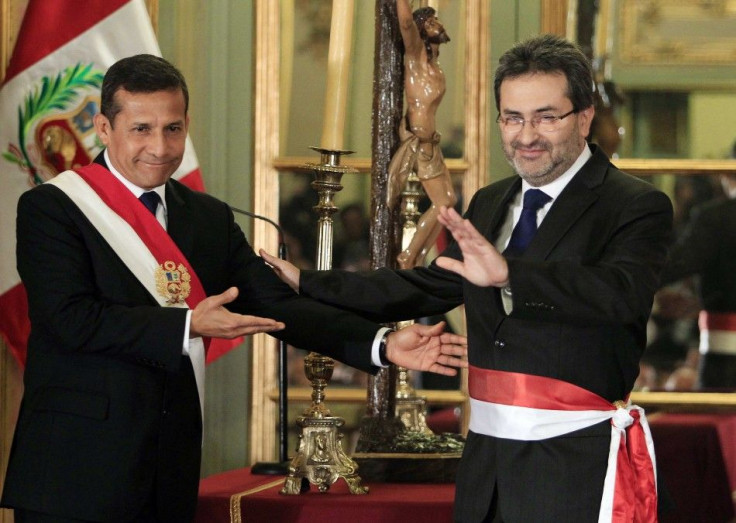Peruvian President Replaces Controversial Prime Minister Amid Anti-Mining Protests

Peruvian President Ollanta Humala appointed a new prime minister among several anticipated cabinet changes Monday, reflecting pressure from low approval ratings amid mass environmental protests.
Former Justice Minister Juan Jimenez replaced Oscar Valdes, a former army general, who as prime minister ordered a crackdown earlier this month on protesters of a controversial mining project in the northern region of Cajamarca.
Five civilians were killed in clashes with security forces while protesting the $4.8 billion Conga gold mine project financed by U.S. firm Newmont Mining Corp. (NYSE:NEM), which detractors argued would contaminate local water sources.
Valdes, facing criticism over the crackdown, stepped down from his post, making way for a cabinet reshuffling as all minister positions are constitutionally subject to replacement after a prime minister resigns.
Jimenez's appointment is seen as an attempt to help bolster leftist President Humala's approval ratings, which dropped below 40 percent this month -- the lowest since he took office nearly one year ago -- as his political base has become disenchanted with his support for lucrative mining projects over environmental issues.
Jimenez emphasized that he would take a more diplomatic approach to resolving social issues, such as the anti-mining protests.
This will be a cabinet of dialogue, Jimenez said. We will move closer to the people. We will readdress the issue of social conflicts in Peru.
Of the 18 other minister positions, five -- justice, defense, interior, agriculture and health -- were replaced with the rest remaining unchanged.
This is the second time Humala has reshuffled his cabinet, after replacing the first prime minister, Solomon Lerner, with Valdes last December, again, amid anti-mining demonstrations.
As Humala approaches the end of his first year of his five-year term on July 28, he has been criticized by much of his base for shifting away from his campaign promises to uplift the rural poor left behind by Peru's rapidly expanding economy.
Humala has gone forward with over $50 billion in mining projects despite strong opposition from Peru's large rural population, which accounts for over a quarter of the country's total.
At least 12 other people have been killed in clashes with security forces amid separate anti-mining protests since Humala took office.
Before, this government talked about eradicating poverty and defending our biodiversity and water resources, Edwin Montenegro, leader of the Peruvian-based indigenous people's organization Orpian, told the Guardian last month, prior to the crackdown in Cajamarca.
But now we can no longer trust it to solve conflicts through dialogue.
Whether Prime Minister Jimenez will actually take a more diplomatic approach to resolving social conflicts than his predecessor will be a matter of deep scrutiny, though dialogue is not likely to significantly stem off mining in Peru.
© Copyright IBTimes 2025. All rights reserved.





















